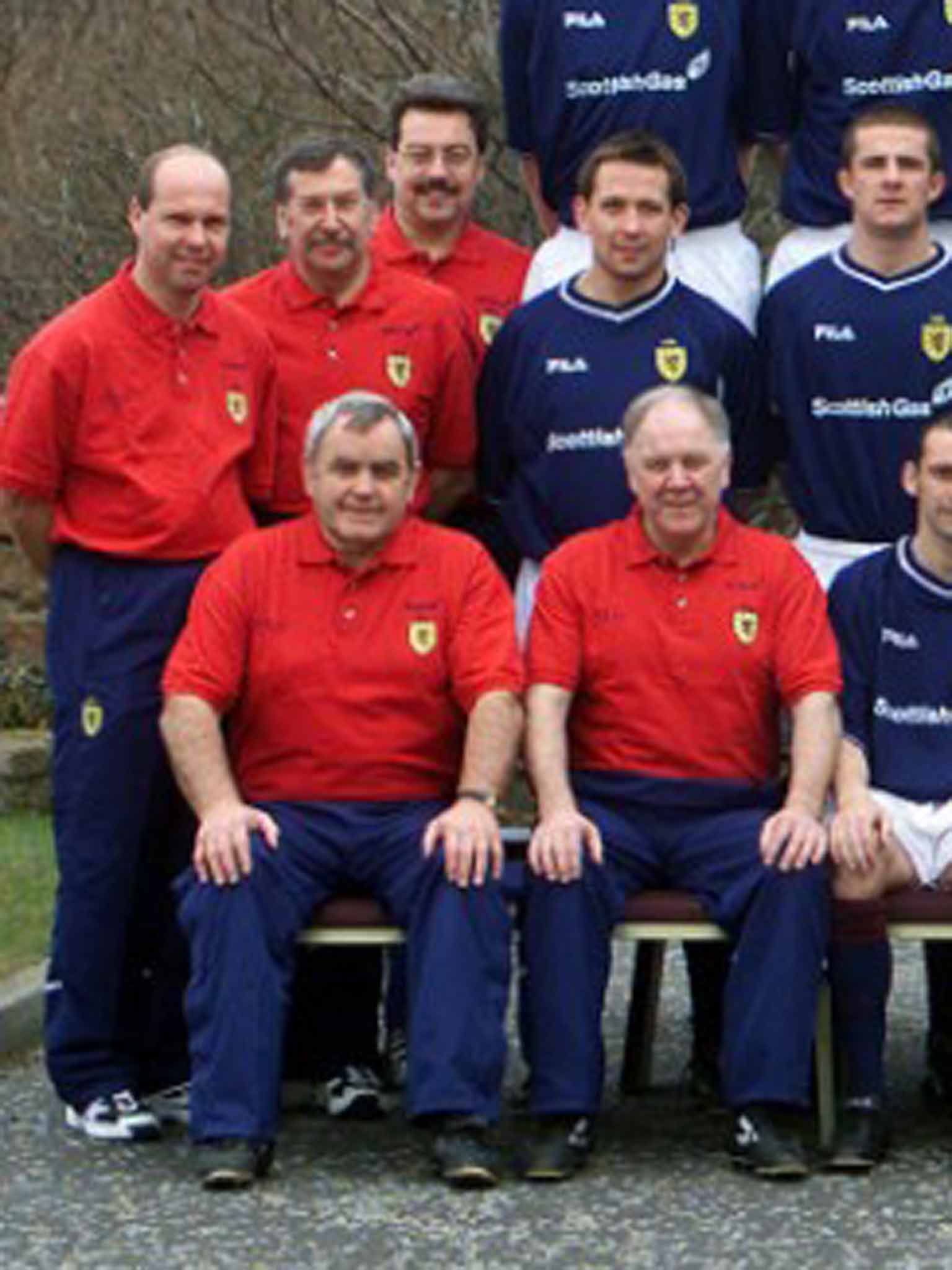Stewart Hillis: Expert in sports science who served the Scotland football team 228 times but couldn't save Jock Stein
Phil Shaw

Your support helps us to tell the story
From reproductive rights to climate change to Big Tech, The Independent is on the ground when the story is developing. Whether it's investigating the financials of Elon Musk's pro-Trump PAC or producing our latest documentary, 'The A Word', which shines a light on the American women fighting for reproductive rights, we know how important it is to parse out the facts from the messaging.
At such a critical moment in US history, we need reporters on the ground. Your donation allows us to keep sending journalists to speak to both sides of the story.
The Independent is trusted by Americans across the entire political spectrum. And unlike many other quality news outlets, we choose not to lock Americans out of our reporting and analysis with paywalls. We believe quality journalism should be available to everyone, paid for by those who can afford it.
Your support makes all the difference.If the Scottish Football Association awarded caps to the team doctor, Professor Stewart Hillis would have amassed 228 from full internationals with Scotland between 1982 and 2010 – including one from the night he struggled in vain to save the life of Jock Stein – and 54 in six years with the Under-21 squad from 1976.
Hillis, who has died at the age of 70, was a world-renowned specialist in sports science and a pioneer in the fields of psychology, physiology, biomechanics and diet in relation to injuries sustained in sport. Professor of Cardiovascular and Exercise Medicine at the University of Glasgow, he co-authored the book Cardiovascular Disease, was vice-chairman of the medical committee of Uefa, European football's governing body, and a medical advisor to its global equivalent, Fifa.
The son of a shipyard foreman and a lifelong member of the Church of Scotland, Hillis was as warm and genial as he was authoritative and knowledgeable. In the words of the current Scotland manager and ex-captain, Gordon Strachan, "he lit up a room with his personality and you could always rely on his advice".
In 1985, Hillis was present when the Scots reached the World Cup finals with a late penalty equaliser against Wales. Stein, the Scotland manager, collapsed and was helped to the dressing-room where Hillis tried to keep his heart beating. "I'm feeling much better now, Doc," Stein said, his dying words.
Hillis' anguish was compounded by his fondness for the legendary former Celtic manager. "It's bad to not be successful in a resuscitation attempt [but] even worse when it's someone you know very well," he recalled. "It's often said Jock had a heart attack but he didn't as such. He had heart-muscle disease. Normally he'd have taken water tablets but, on the day of the game, he didn't. He was his own man."
In 1995, when Scotland played Japan, Hillis was so incensed by a brutal foul on Rab McKinnon that he ran on to remonstrate with the guilty party. He was sent off by the referee and, having recently been appointed to Uefa's committee, was embarrassed and worried he might have jeopardised his position. Craig Brown, one of nine Scotland managers he served, saw it as an example of his primary concern being for the players' well-being.
Hillis studied medicine at the University of Glasgow, graduating in 1967 and returning as a consultant cardiologist 10 years later. There he developed BSc and Masters courses in Sports Medicine. He served two clubs, Clydebank (for 27 years from 1970) and Rangers (one season in the late 1990s), and was behind the creation of the Sports Medicine Centre at Hampden Park.
After ending 40 years in football by retiring from the SFA in 2010 – when he was awarded the OBE for services to medicine and sport – Hillis continued as a consultant in two Strathclyde hospitals. He had recovered from prostate cancer but in May he was diagnosed with mesothelioma, a rare form of cancer most commonly caused by exposure to asbestos.
Professor William Stewart Hillis, sports-medicine specialist and author: born Clydebank, West Dunbartonshire 28 September 1943; OBE 2010; married Anne (three sons, one daughter); died Glasgow 21 July 2014.
Join our commenting forum
Join thought-provoking conversations, follow other Independent readers and see their replies
Comments